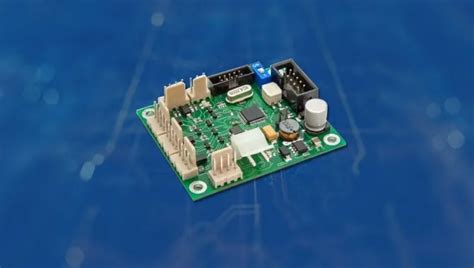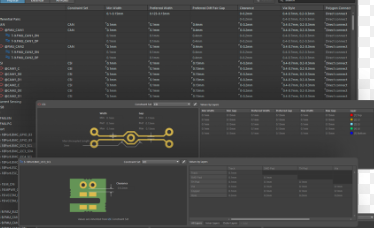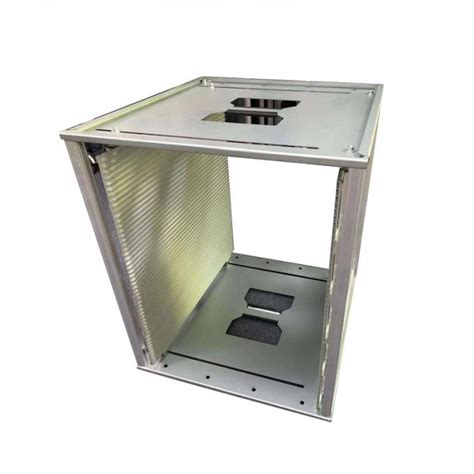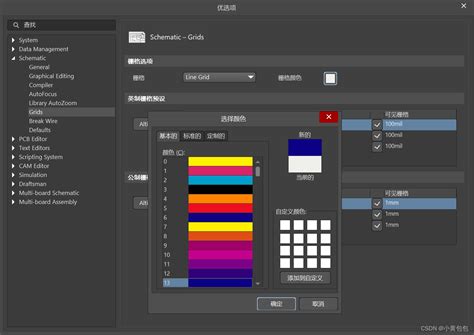Turnkey PCB Manufacturing: Reliable Solutions for Scalable Production
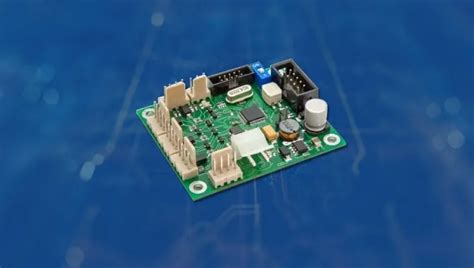
Key Takeaways
Turnkey PCB assembly services provide end-to-end solutions that streamline electronics production, from design validation to final PCBA delivery. By integrating PCB fabrication, component sourcing, and assembly processes under one roof, manufacturers eliminate logistical bottlenecks while ensuring consistent quality across prototypes and high-volume orders. Scalability is achieved through flexible PCB assembly workflows that adapt to project complexity, whether testing low-volume iterations or ramping up for mass production. Advanced automated optical inspection (AOI) and functional testing protocols maintain reliability at every stage, minimizing defects in PCBA outputs. This approach reduces overhead costs by consolidating expertise, avoiding fragmented vendor chains, and accelerating time-to-market. For businesses prioritizing supply chain efficiency, turnkey solutions offer centralized accountability, with single-point technical support addressing design-for-manufacturability (DFM) challenges. By leveraging PCB assembly partners with certified processes, companies gain access to industry-compliant production—critical for aerospace, medical, or IoT applications requiring stringent quality benchmarks.
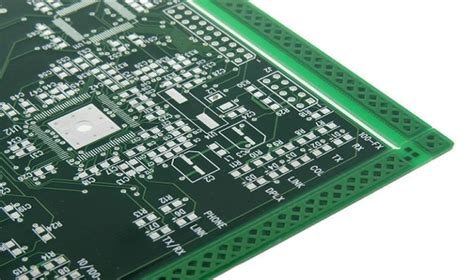
Turnkey PCB Manufacturing Process Explained
The turnkey PCB manufacturing process integrates design, prototyping, component procurement, PCB assembly, and testing into a seamless workflow. It begins with design file validation, where engineers review schematics for manufacturability, followed by prototype development to verify functionality. Once approved, the PCBA (Printed Circuit Board Assembly) phase commences, combining automated surface-mount technology (SMT) and through-hole assembly for precise component placement.
| Process Phase | Key Activities | Technologies Used |
|---|---|---|
| Design & Prototyping | DFM checks, prototype testing | CAD software, 3D modeling |
| Component Procurement | BOM validation, sourcing | ERP systems, vendor databases |
| PCB Assembly | SMT placement, soldering | Pick-and-place machines, reflow ovens |
| Testing & Quality Control | AOI, functional testing | Automated optical inspection (AOI) |
| Final Delivery | Packaging, logistics coordination | ESD-safe materials, tracking systems |
Tip: To avoid delays, ensure your bill of materials (BOM) specifies alternate components for hard-to-source parts during procurement.
The PCBA stage emphasizes scalability, enabling manufacturers to transition smoothly from low-volume prototypes to high-volume production. Advanced automated optical inspection (AOI) systems detect soldering defects or misalignments, ensuring compliance with IPC-A-610 standards. For complex projects, thermal stress testing and signal integrity analysis further validate board reliability.
By consolidating these stages under a single provider, turnkey PCB manufacturing minimizes supply chain risks and accelerates time-to-market. This end-to-end approach is particularly advantageous for industries requiring rigorous quality control and rapid scalability, such as automotive or IoT device production.
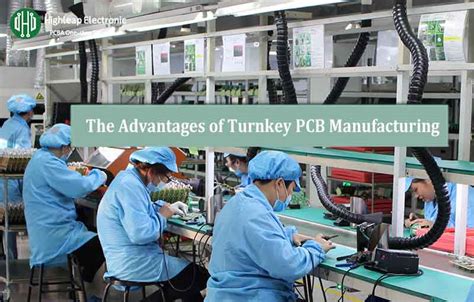
Benefits of Full-Service PCB Production
Full-service PCB assembly solutions streamline product development by integrating design, manufacturing, and testing into a unified workflow. This approach eliminates fragmented coordination between multiple vendors, reducing logistical errors and accelerating time-to-market for both prototypes and high-volume orders. By leveraging PCBA (Printed Circuit Board Assembly) expertise, manufacturers ensure precise component placement, soldering accuracy, and compatibility with advanced surface-mount technologies.
A key advantage lies in cost predictability—single-source responsibility minimizes unexpected expenses related to design revisions or material shortages. Scalability is another critical benefit: whether producing 50 units for validation or 10,000 for mass deployment, turnkey PCB manufacturing adapts seamlessly to demand fluctuations. Advanced PCBA providers also implement rigorous in-process inspections, ensuring compliance with IPC-A-610 standards and reducing post-production defects.
Moreover, full-service models simplify supply chain management by handling component sourcing, inventory storage, and final packaging. This end-to-end oversight reduces risks associated with supply chain disruptions or component obsolescence, particularly for complex multilayer boards. By consolidating expertise under one roof, businesses gain access to technical support throughout the product lifecycle, from initial PCB assembly optimization to final quality assurance. Such integration not only enhances reliability but also allows engineers to focus on innovation rather than operational hurdles.
Scalable PCB Assembly for Prototypes
When transitioning from prototype development to full-scale manufacturing, PCB assembly scalability becomes critical. Modern PCBA services are engineered to accommodate both low-volume experimental runs and high-volume production, ensuring seamless scaling without compromising quality. By integrating design for manufacturability (DFM) principles early in the prototyping phase, manufacturers optimize layouts for automated assembly processes, reducing errors and accelerating iteration cycles.
A key advantage of scalable PCB assembly lies in its flexibility. Advanced surface-mount technology (SMT) and mixed-technology lines enable precise placement of components across varying batch sizes, while real-time process monitoring ensures consistency. For prototypes, this means faster validation of design concepts, with the ability to swiftly adjust component sourcing or assembly workflows as requirements evolve.
Moreover, scalable PCBA solutions often incorporate just-in-time (JIT) inventory management, minimizing material waste and storage costs. This approach is particularly valuable for startups and R&D teams, allowing them to test multiple iterations cost-effectively before committing to large orders. Automated optical inspection (AOI) and functional testing protocols further guarantee that prototypes meet performance benchmarks, laying a reliable foundation for mass production.
By aligning PCB assembly capabilities with project scalability, manufacturers bridge the gap between innovation and commercialization, ensuring prototypes evolve into market-ready products efficiently.
Quality Control in Turnkey PCB Services
Effective quality control is the backbone of reliable PCB assembly and PCBA outcomes in turnkey manufacturing. Unlike fragmented production models, integrated turnkey services embed rigorous testing protocols at every stage—from component procurement to final inspection. Automated optical inspection (AOI) and X-ray analysis ensure solder joint integrity and component alignment, while functional testing validates circuit performance against design specifications.
To maintain consistency across scalable orders, turnkey providers employ statistical process control (SPC) to monitor production deviations in real time. This proactive approach minimizes defects, particularly in high-volume PCB assembly, where even minor errors can escalate costs. Additionally, traceability systems track materials and processes, enabling rapid root-cause analysis if issues arise.
Certifications such as ISO 9001 and IPC-A-610 standards further underscore compliance with industry benchmarks, ensuring that PCBA deliverables meet both functional and durability requirements. By aligning quality assurance with client-specific needs, turnkey solutions bridge the gap between prototype validation and mass production, safeguarding product reliability without compromising scalability.
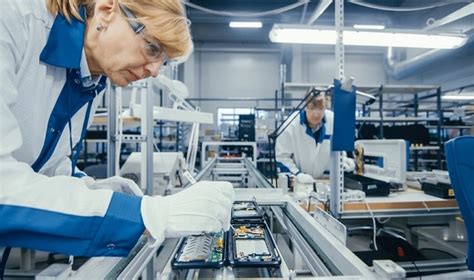
Cost-Effective Turnkey Electronics Solutions
Adopting turnkey PCB manufacturing streamlines production by consolidating design, component procurement, and PCB assembly (PCBA) into a single, integrated workflow. This approach eliminates the logistical complexities of managing multiple vendors, reducing overhead costs while accelerating time-to-market. By leveraging economies of scale in PCBA processes, manufacturers can optimize material sourcing and minimize waste, particularly for high-volume orders. Advanced automation in solder paste application, pick-and-place systems, and inspection further ensures consistent quality without inflating labor expenses.
For prototyping or small-batch projects, turnkey services offer flexible pricing models that align with budget constraints. Bulk purchasing agreements for components, coupled with optimized panelization strategies during PCB assembly, lower per-unit costs significantly. Additionally, integrated testing protocols embedded within the PCBA phase prevent costly post-production defects. By partnering with a turnkey provider, businesses mitigate risks associated with supply chain disruptions and component shortages, ensuring predictable pricing even in volatile markets. This end-to-end efficiency makes turnkey electronics solutions a strategic choice for balancing cost control with scalable, high-quality output.
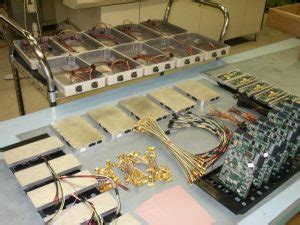
Design-to-Delivery PCB Manufacturing Guide
A holistic design-to-delivery approach streamlines electronics production by integrating every phase into a unified workflow. This methodology begins with design optimization, where engineers refine schematics for manufacturability, ensuring compatibility with automated PCB assembly processes. Advanced software tools validate layouts, minimizing errors before prototyping. Once designs are finalized, PCBA (printed circuit board assembly) transitions into action, combining surface-mount technology (SMT) and through-hole assembly to populate boards with precision.
Scalability is embedded at each stage, allowing seamless shifts from low-volume prototypes to high-volume runs. Material procurement, a critical bottleneck, is managed through vendor partnerships that guarantee component availability and cost efficiency. Automated optical inspection (AOI) and functional testing then verify performance, aligning with industry standards like IPC-A-610.
The logistics phase ensures timely delivery, with options for kitting, labeling, and global shipping tailored to project timelines. By consolidating design, PCB assembly, testing, and distribution under one provider, businesses reduce overhead risks and accelerate time-to-market. This end-to-end integration not only simplifies supply chain complexities but also maintains consistency across production batches—a key advantage for industries requiring rigorous quality control, such as automotive or medical devices.
Turnkey Solutions for Large-Scale PCB Projects
For enterprises managing high-volume electronics production, turnkey PCB manufacturing streamlines complex workflows by integrating PCB assembly (PCBA), material sourcing, and testing into a unified process. This approach eliminates fragmented vendor coordination, ensuring seamless scalability from prototype validation to mass production. Advanced PCBA systems leverage automated optical inspection (AOI) and precision pick-and-place machinery to maintain consistency across thousands of units, while just-in-time inventory strategies reduce lead times.
Scalable solutions prioritize design-for-manufacturability (DFM) principles, enabling rapid adjustments for evolving project requirements. By consolidating PCB assembly with component procurement, manufacturers mitigate risks like supply chain disruptions or component obsolescence. Rigorous testing protocols, including in-circuit (ICT) and functional validation, ensure compliance with industry standards even at high volumes. Additionally, centralized data analytics provide real-time insights into yield rates and production bottlenecks, empowering teams to optimize costs without compromising quality.
For large-scale initiatives, the turnkey model transforms complexity into predictability, delivering end-to-end traceability and economies of scale that traditional fragmented approaches cannot match.
Optimizing Production With Turnkey PCB Expertise
Modern electronics manufacturers increasingly rely on turnkey PCB manufacturing to streamline complex production workflows. By integrating PCB assembly (PCBA) with design validation, material procurement, and testing, full-service providers eliminate bottlenecks that traditionally delay time-to-market. Advanced turnkey solutions leverage automated assembly lines and AI-driven process optimization to maintain precision across high-volume orders while accommodating rapid prototype iterations.
A critical advantage lies in the synchronization of PCB fabrication and PCBA stages, which reduces cross-vendor coordination risks and ensures consistent quality benchmarks. Engineers benefit from design-for-manufacturability (DFM) feedback during early phases, minimizing rework costs and material waste. Additionally, scalable inventory management systems enable just-in-time component sourcing, crucial for balancing cost efficiency with dynamic production demands.
For large-scale projects, turnkey PCB expertise translates to end-to-end traceability, with real-time analytics monitoring yield rates and defect trends. This data-driven approach not only accelerates root-cause analysis but also supports continuous process improvements. By unifying design, assembly, and logistics under a single framework, manufacturers achieve tighter control over lead times while adapting seamlessly to evolving technical specifications or market requirements.
Conclusion
In the evolving landscape of electronics manufacturing, turnkey PCB manufacturing stands as a cornerstone for businesses seeking seamless integration of design, fabrication, and PCB assembly. By consolidating every stage—from prototyping to full-scale PCBA—these services eliminate logistical bottlenecks, ensuring scalable production without compromising precision. The inherent flexibility of turnkey solutions allows companies to adapt swiftly to market demands, whether scaling up for high-volume orders or refining prototypes with iterative testing.
A critical advantage lies in the harmonization of quality control measures across the entire workflow. Advanced inspection protocols and automated assembly processes mitigate risks, delivering consistent performance even for complex designs. Moreover, the cost-efficiency of bundling design, manufacturing, and PCB assembly under one provider reduces overhead while accelerating time-to-market.
Ultimately, partnering with a turnkey PCB manufacturer empowers businesses to focus on innovation rather than operational intricacies. The integration of technical expertise and cutting-edge infrastructure ensures that projects—from niche prototypes to mass-produced electronics—are executed with reliability and precision, solidifying a competitive edge in today’s fast-paced industry.
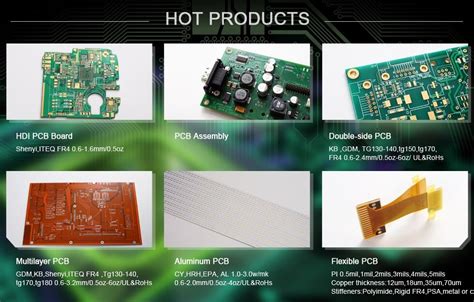
FAQs
What distinguishes turnkey PCB manufacturing from standard services?
Turnkey solutions integrate PCB assembly (PCBA), component sourcing, and testing into a unified workflow, eliminating the need for multiple vendors. This end-to-end approach ensures faster timelines and reduces logistical complexities.
How does turnkey PCB production support scalable projects?
By combining design optimization with automated PCBA processes, manufacturers can seamlessly transition from low-volume prototypes to high-volume runs. Advanced equipment and standardized workflows maintain consistency across batch sizes.
What quality measures are embedded in turnkey services?
Rigorous in-circuit testing (ICT) and automated optical inspection (AOI) are applied post-PCB assembly, ensuring compliance with IPC-A-610 standards. Real-time data tracking further minimizes defects in large-scale orders.
Are turnkey solutions cost-effective for small batches?
Yes. Consolidated procurement and just-in-time inventory models reduce overheads, even for prototype quantities. Bulk pricing for components and shared engineering fees further optimize costs.
Can I customize design requirements in a turnkey workflow?
Absolutely. Most providers offer design-for-manufacturability (DFM) analysis to refine layouts before PCBA, balancing performance goals with production efficiency.
Ready to Streamline Your Production?
For tailored turnkey PCB manufacturing solutions—from prototyping to mass production—please click here to explore capabilities or request a quote.

